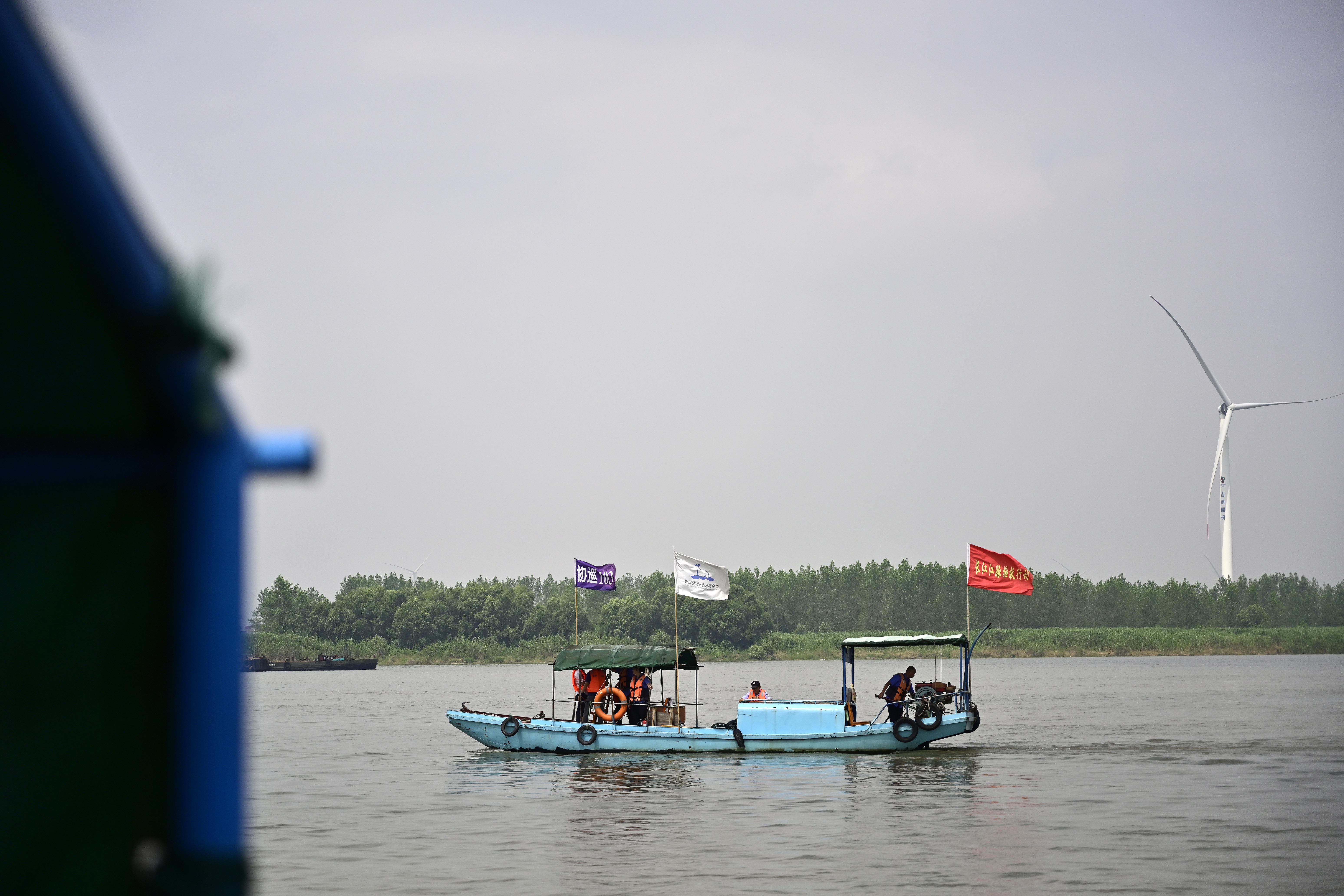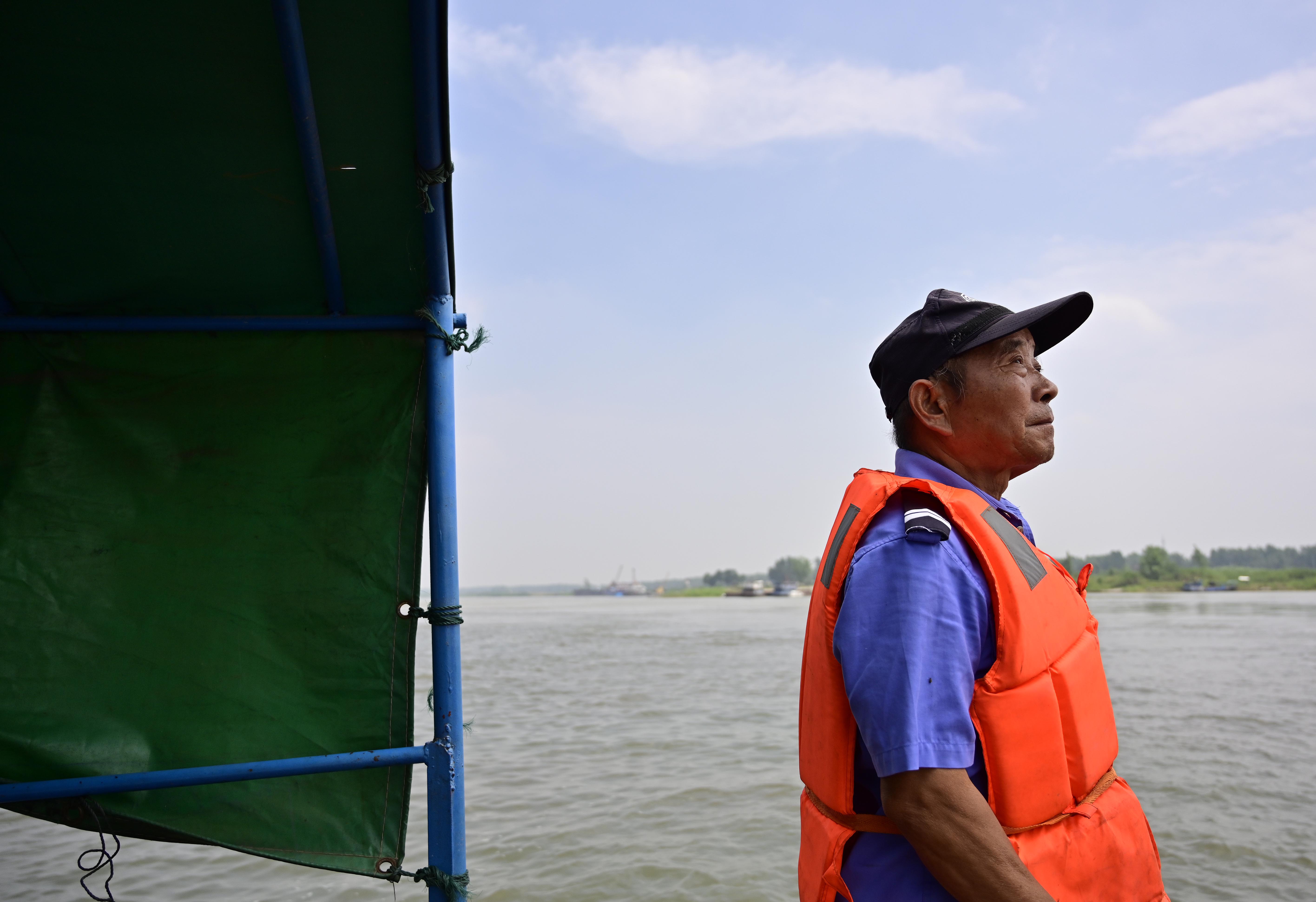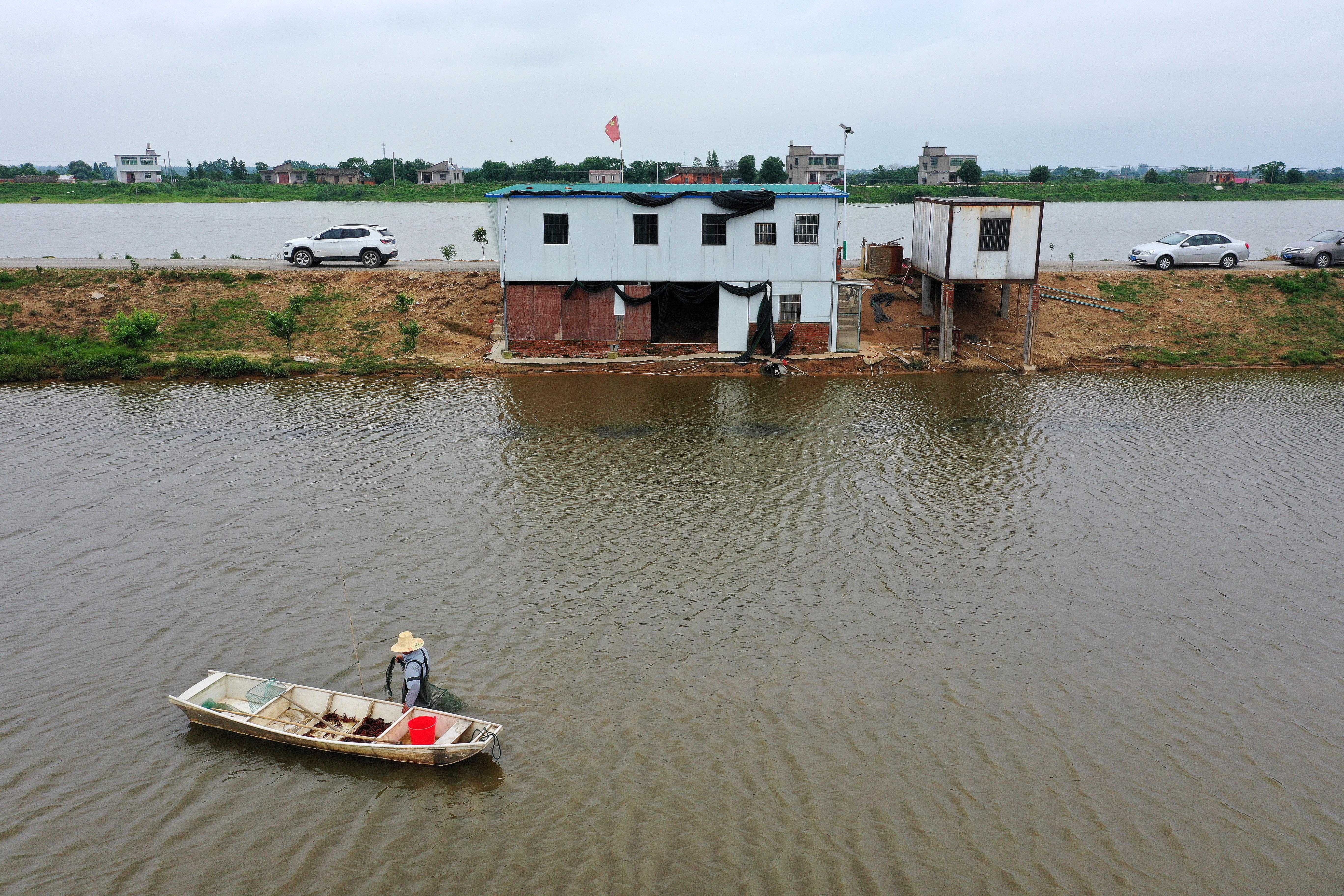Chinese fishermen embrace new life ashore
China began a 10-year fishing moratorium from the beginning of this year in 332 conservation areas in the Yangtze River basin, which will be expanded to all the natural waterways of the country's longest river and its major tributaries from no later than Jan. 1, 2021.
China began a 10-year fishing moratorium from the beginning of this year in 332 conservation areas in the Yangtze River basin, which will be expanded to all the natural waterways of the country's longest river and its major tributaries from no later than Jan. 1, 2021.
The full-scale ban is likely to affect more than 113,000 fishing boats and nearly 280,000 fishermen in 10 provincial-level regions along the river, according to earlier estimation.
Members of a Yangtze finless porpoise protection team take part in a patrol mission on the Poyang Lake in Hukou County, east China's Jiangxi Province, June 8, 2020. Eight of the 11 team members are fishermen-turned finless porpoise protectors who patrol the Poyang Lake on a daily basis. Their missions include dismantling illegal fishing facilities and preventing unlawful activities that damage the Poyang Lake's fisheries resources. [Photo/Xinhua]
This comes after decades of human activities such as water pollution, overfishing, sand excavation and quarrying have caused serious ecological destruction in the Yangtze River basin.
The Yangtze, which stretches over 6,300 km, boasts rich and complex terrain and climate along its basin and has one of the highest levels of biodiversity in the world.
Wu Houchun, an ex-fisherman who works at a Yangtze finless porpoise protection team, takes part in a patrol mission on Poyang Lake in Hukou County, east China's Jiangxi Province, June 8, 2020. [Photo/Xinhua]
Official data shows that the average annual fishing output in the Yangtze River is less than 100,000 tonnes, accounting for only 0.15 percent of the national total, which has set alarm bells ringing for the need to take immediate action to restore its ecology.
In areas around the Poyang Lake, China's largest freshwater lake in the eastern province of Jiangxi, there are more than 300 traditional fishing villages housing over 100,000 residents. Due to the ban, those fishermen will have to bid farewell to their traditional roles and embrace new identities ashore.
Aerial photo shows Wu Huashan harvesting crayfish at his fish pond in Xiangshan Township of Nanchang, east China's Jiangxi Province, June 5, 2020. Having learned fishing at an early age with his parents, Wu was a skilled fisherman and was head of a local fishery association. In late 2019, he bade farewell to his boats and started a crayfish business. [Photo/Xinhua]
Finless porpoise protector
Shu Yin'an, 53, born of a fishing family of three generations, is currently working as a patroller in a Yangtze finless porpoise protection team in Hukou County, Jiangxi Province.
The finless porpoise, an endemic species in China, is an important indicator of the ecology of the Yangtze.
Known for its mischievous smile, the finless porpoise has a level of intelligence comparable to that of a gorilla. However, they rely on abundant food supply for survival. In recent years, overfishing in the Yangtze River has contributed to the decrease in their number.
"I grew up on the Poyang Lake and finless porpoises used to be common here, but they've been seldomly spotted in recent years," said Shu, who decided to wave goodbye to his fishing boat and nets and began a new life ashore in 2017. In June that year, he went aboard again with a new career as a finless porpoise protector.
Members of a Yangtze finless porpoise protection team attend a mission briefing ahead of a daily patrol on the Poyang Lake in Hukou County, east China's Jiangxi Province, June 8, 2020. Eight of the 11 team members are fishermen-turned finless porpoise protectors who patrol the Poyang Lake on a daily basis. Their missions include dismantling illegal fishing facilities and preventing unlawful activities that damage the Poyang Lake's fisheries resources. [Photo/Xinhua]
Zhang Chuanguo, Shu's colleague, intended to have his two sons inherit his fishing boats after his retirement. But the 65-year-old was frustrated to find that catches of the once fish-rich lake have been dramatically dwindling.
"We shouldn't leave a devastated river for future generations," said Zhang.
"I'm proud to be a finless porpoise protector," he said. "We are fighting to secure a better life for the people living around the Poyang Lake and in the Yangtze River basin."
Members of a Yangtze finless porpoise protection team pose for a group photo on a patrol boat on the Poyang Lake in Hukou County, east China's Jiangxi Province, June 8, 2020. Eight of the 11 team members are fishermen-turned finless porpoise protectors who patrol the Poyang Lake on a daily basis. Their missions include dismantling illegal fishing facilities and preventing unlawful activities that damage the Poyang Lake's fisheries resources. [Photo/Xinhua]






